WE SUMMON THE DARKNESS (2019)
Three best friends embark on a road trip to a heavy-metal show, where they bond with three aspiring musicians and head off to one of the girls' country home for an after-party.
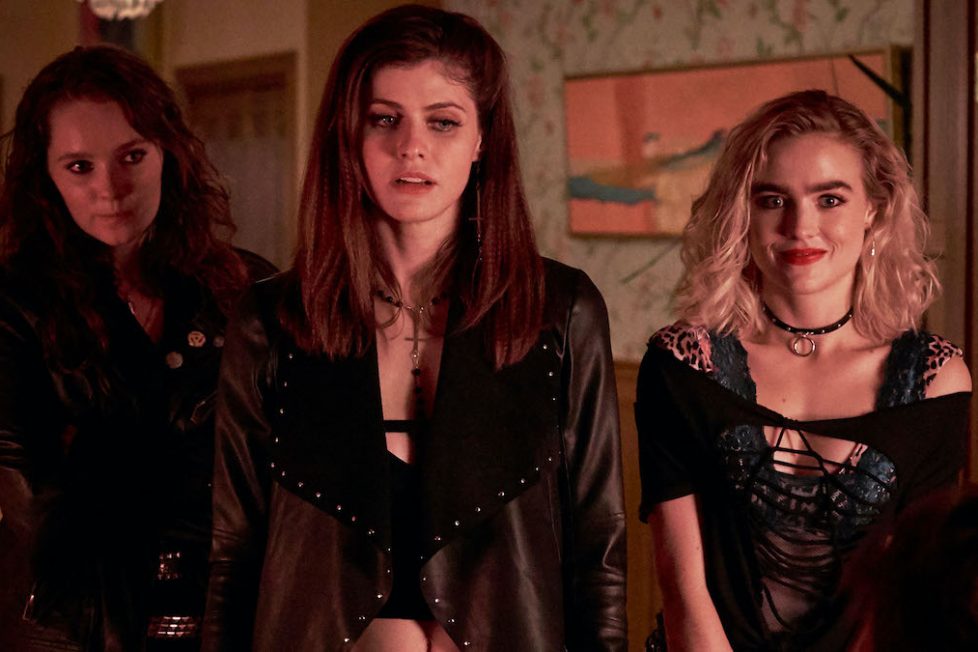
Three best friends embark on a road trip to a heavy-metal show, where they bond with three aspiring musicians and head off to one of the girls' country home for an after-party.


Marc Meyers’ latest film, We Summon the Darkness, knows exactly what it is. Although there aren’t many new twists in this horror thriller, what’s most notable is the occasional humour thanks to Alexandra Daddario’s lead performance. Unlike Zombieland (2009), which was a clear-cut horror-comedy, We Summon the Darkness is first and foremost a slasher evoking real suspense while making us laugh along at the desperation of its OTT characters.
Three friends—Alexis (Daddario), Val (Maddie Hasson), and Bev (Amy Forsyth)—entice three boys from a heavy-metal concert back to Alexis’s father’s house. It turns out these girls are part of a murderous Satanic cult and, in a reversal of gender conventions, the boys are their unwitting prey after being drugged and awakening in the midst of a ritual sacrifice. Some may have seen this coming a mile away, but it certainly grabbed my attention after an exasperatingly slow start.
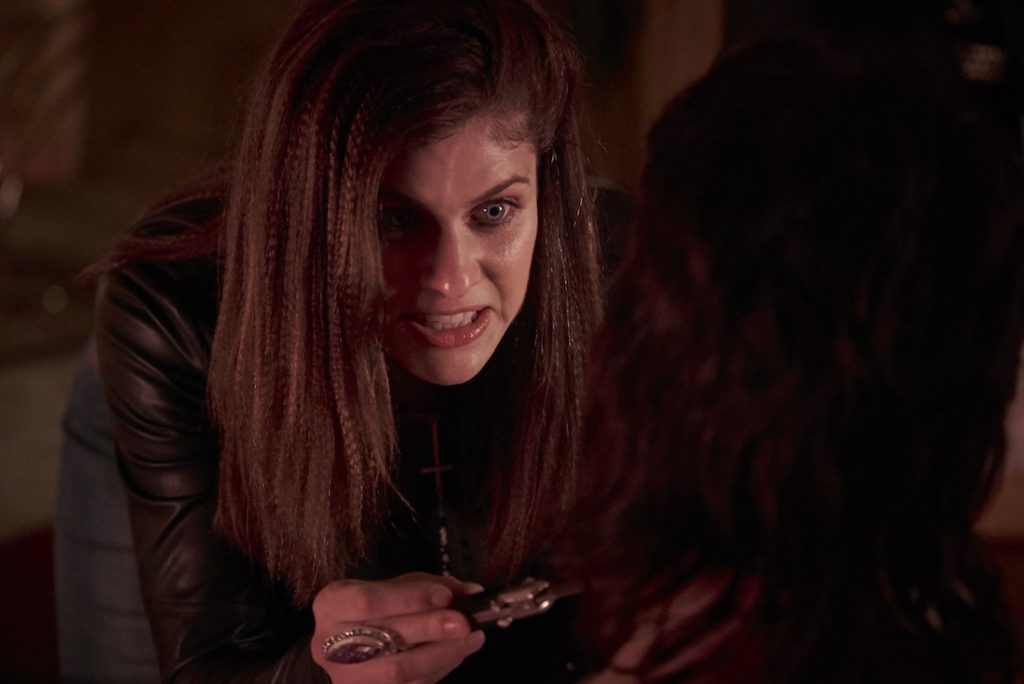
The story’s set in 1988, which leaves room for suspension of disbelief and there’s a helpful lack of cell phones to solve a lot of problems. With heavy metal music on the rise in the ’80s, Christian extremists portrayed fans of the genre as acolytes of Satan. We Summon the Darkness is fully aware it’s exploring the era’s cliches but plays into them rather than focus on an anti-religious narrative—which is there, more subtly.
We Summon the Darkness has a solid understanding of music, too, which was a pleasant surprise, referencing many iconic and lesser-known musicians. The period is communicated through dialogue about Twinkies and suchlike, while the house itself is a dated vision of opulence. The girl’s idea of what’s “badass” is also old-fashioned sounding, so a lot of the comedy stems from how they think they’re more threatening and dangerous than they are from a modern perspective.
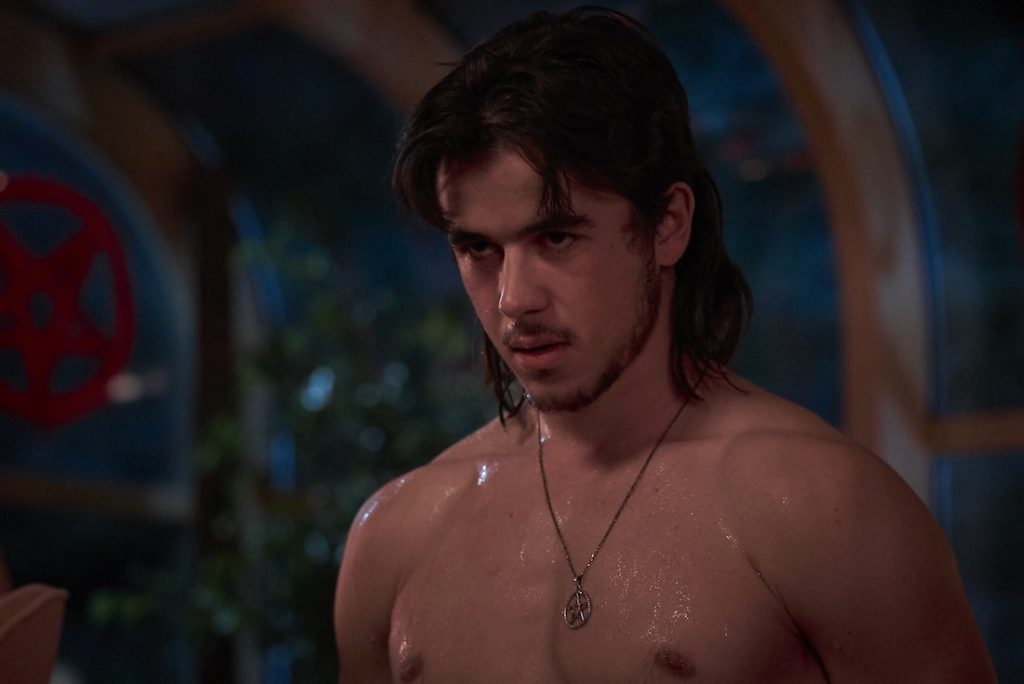
These female cultists are far too light-hearted to be seen as a credible threat to most males today. Alexis is motivated by a will to impress her cult leader dad (Johnny Knoxville); Val seems to be following the lead of her best friend; while Bev has her own goals that aren’t revealed until the end. The limited exposure of Bev’s character through what, initially, seem to be throwaway lines make her character’s arc hit harder and lends more meaning to the conclusion.
The film goes all-in on slasher tropes; I don’t think any character gets away without taking a stab at someone. This is fine so long as you’re aware it’s not aiming to be anything more than an ’80s pastiche. But while a movie like Scream (1996) began from the perspective of a teenage victim, this film succeeds in telling the story from the trickier perspective of the killers.
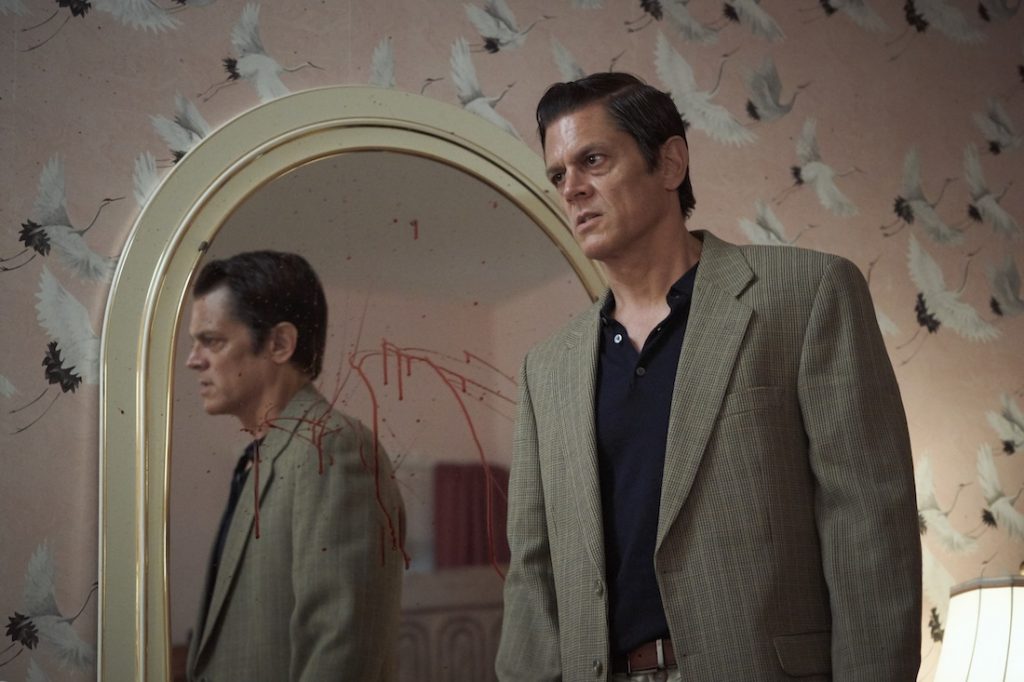
As it progresses, we’re heavily invested in the girls, whom we’ve followed to the concert and home, and don’t want to see them lose. We’re rooting for the killers instead of quivering in fear over when they might pop up next. This was a welcome spin on the genre as I’m used to willing the likes of Laurie Strode (Halloween) to escape harm. But as We Summon the Darkness approached its climax, I wanted to see Alexis escape unscathed and with pride in her accomplishment. Although there’s definitely a victory, it’s not one you envisioned, but meaningful nonetheless.
It also saves an ambiguous twist for the end that gives closure to its character’s motives—most of them, of course, turning into agents of their own destinies, turning on each other, and losing faith in their cause as the situation gets gorier and gorier. The more they lose control of things, the more they must improvise—such as when Alexis’s stepmom calls the cops.
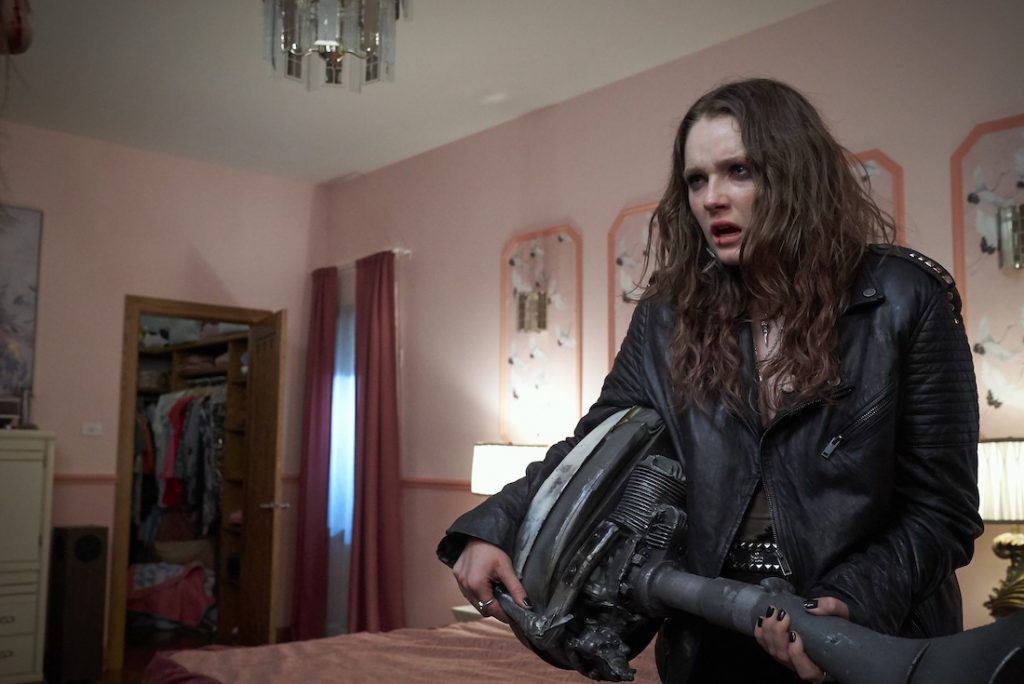
The stepmom’s arrival was at first jarring, but also laughable. In hindsight, her revved-up performance of a spoilt paranoid gold digger helps cement the film’s unexpectedly humorous tone. There’s often some kind of victory planned in seeing a stepdaughter take out her ‘evil stepmother’, but here she’s just a dumb hindrance.
Jackass star Knoxville has an enjoyable supporting role as the crazy cult leader. He shows up with elegant but treacherous grace, wafting through the bloody house with nothing but disdain for his daughter’s inability to finish her one job—which has already resulted in the death of his coke-head ex and the involvement of law enforcement threatening his sect.
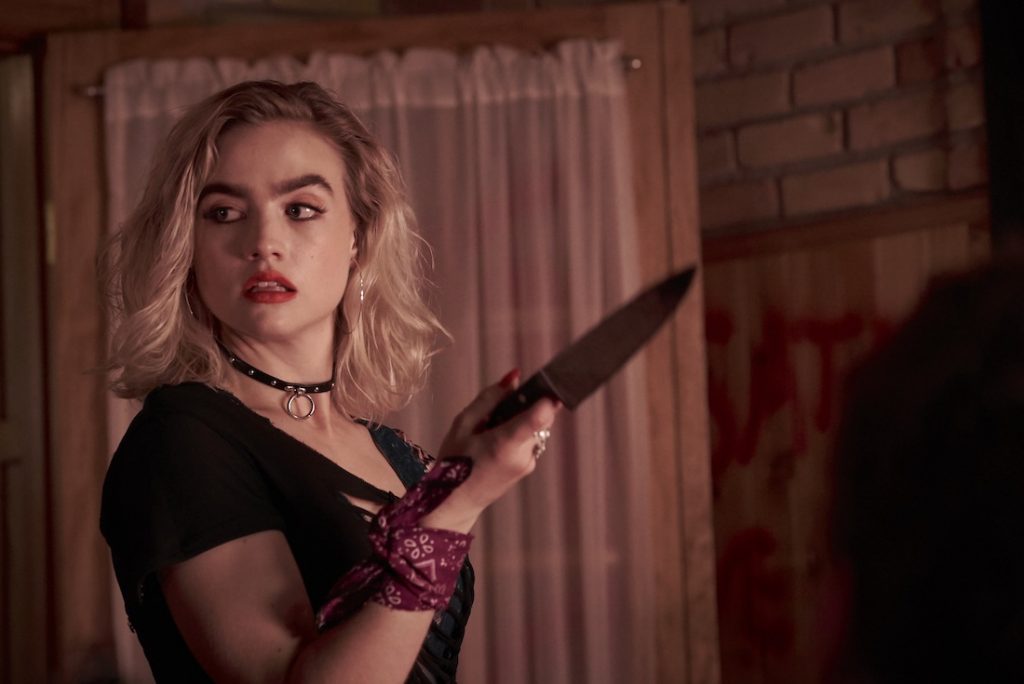
In true horror movie fashion, events occur over a single night. And the ‘kills’ get more creative as Meyer makes great use of his location with everyone running around the property and finding various strange tools to use as makeshift weapons. At one point Bev arms herself with a weed-whacker and Alexis turns an aerosol can and a lighter as a flamethrower. The final showdown with Alexis proves she can even withstand a beating like Jason Voorhees. Shame on us, and her father, for underestimating her!
I’m glad I watched We Summon the Darkness with almost no prior knowledge, although I almost turned it off because of its slow start. It has a healthy respect for the slasher genre but carves out its own identity thanks to the reversal of traditional gender roles and an unexpected depth of knowledge regarding heavy metal. While the film provides enough tension and suspense, it also made me laugh out loud and, despite being evil, I was rooting for Alexis and her killer friends every step of the way.
USA | 2019 | 91 MINUTES | 2.39:1 | COLOUR | ENGLISH

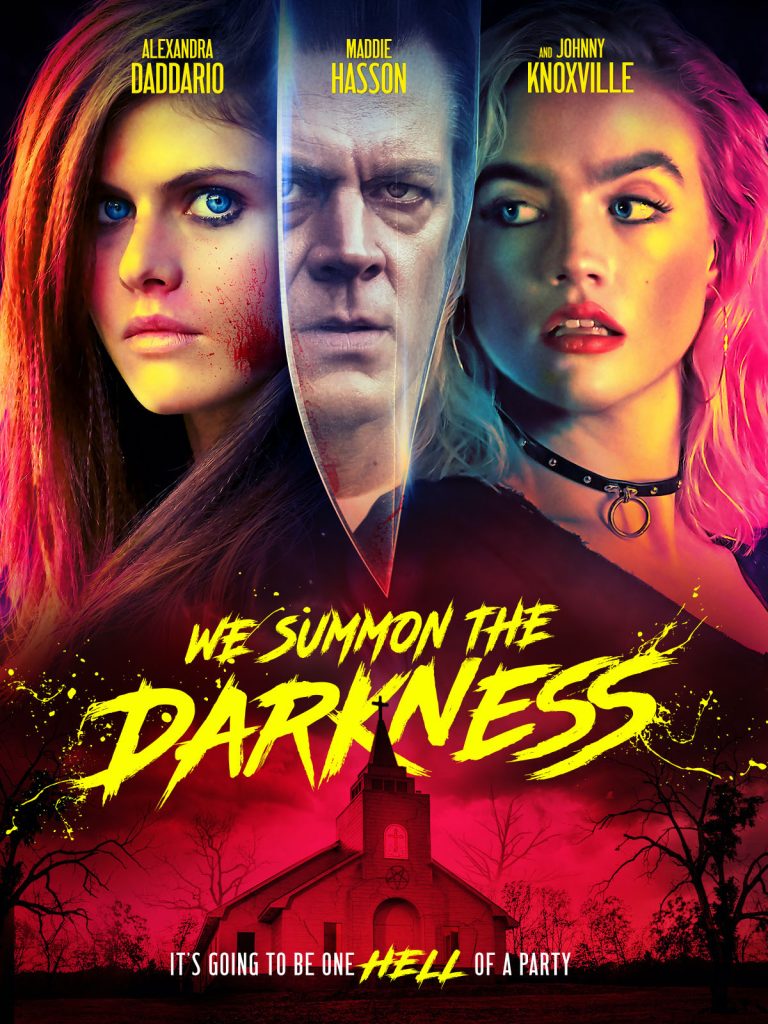
director: Marc Meyers.
writer: Alan Trezza.
starring: Alexandra Daddario, Keean Johnson, Maddie Hasson, Amy Forysth, Logan Miller, Austin Swift & Johnny Knoxville.
